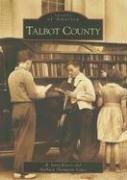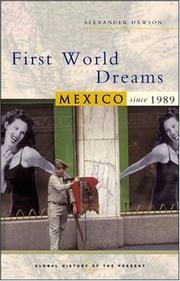| Listing 1 - 10 of 61 | << page >> |
Sort by
|
Book
ISBN: 9681212479 6076289082 Year: 2006 Publisher: El Colegio de México
Abstract | Keywords | Export | Availability | Bookmark
 Loading...
Loading...Choose an application
- Reference Manager
- EndNote
- RefWorks (Direct export to RefWorks)
El libro que el lector tiene en sus manos es el primero de una colección que se conformó en tres distintas series, "los libros de la casa", que incluye textos de autores vitalmente vinculados a la institución; "efemérides", que incluirá publicaciones con un afán conmemorativo de aniversario, celebraciones y homenajes, y "los amigos de la casa", que publicara textos de autores relacionados tangencialmente con el Colegio de México. Estas publicaciones recuperan la tradición de rigor y sobriedad editorial que distingue y ha distinguido a los libros del colegio de México
Mexico --- History --- History of the Americas
Book
Year: 2006 Publisher: University of Hawai'i Press
Abstract | Keywords | Export | Availability | Bookmark
 Loading...
Loading...Choose an application
- Reference Manager
- EndNote
- RefWorks (Direct export to RefWorks)
Princess Bernice Pauahi Bishop was the largest landowner and richest woman in the Hawaiian kingdom. Upon her death in 1884, she entrusted her property--known as Bishop Estate--to five trustees in order to create and maintain an institution that would benefit the children of Hawai'i: Kamehameha Schools. A century later, Bishop Estate controlled nearly one out of every nine acres in the state, a concentration of private land ownership rarely seen anywhere in the world. Then in August 1997 the unthinkable happened: Four revered kupuna (native Hawaiian elders) and a professor of trust-law publicly charged Bishop Estate trustees with gross incompetence and massive trust abuse. Entitled "Broken Trust," the statement provided devastating details of rigged appointments, violated trusts, cynical manipulation of the trust's beneficiaries, and the shameful involvement of many of Hawai'i's powerful. No one is better qualified to examine the events and personalities surrounding the scandal than two of the original "Broken Trust" authors. Their comprehensive account together with historical background, brings to light information that has never before been made public, including accounts of secret meetings and communications involving Supreme Court justices.
Book
Year: 2006 Publisher: University of Hawai'i Press
Abstract | Keywords | Export | Availability | Bookmark
 Loading...
Loading...Choose an application
- Reference Manager
- EndNote
- RefWorks (Direct export to RefWorks)
Princess Bernice Pauahi Bishop was the largest landowner and richest woman in the Hawaiian kingdom. Upon her death in 1884, she entrusted her property--known as Bishop Estate--to five trustees in order to create and maintain an institution that would benefit the children of Hawai'i: Kamehameha Schools. A century later, Bishop Estate controlled nearly one out of every nine acres in the state, a concentration of private land ownership rarely seen anywhere in the world. Then in August 1997 the unthinkable happened: Four revered kupuna (native Hawaiian elders) and a professor of trust-law publicly charged Bishop Estate trustees with gross incompetence and massive trust abuse. Entitled "Broken Trust," the statement provided devastating details of rigged appointments, violated trusts, cynical manipulation of the trust's beneficiaries, and the shameful involvement of many of Hawai'i's powerful. No one is better qualified to examine the events and personalities surrounding the scandal than two of the original "Broken Trust" authors. Their comprehensive account together with historical background, brings to light information that has never before been made public, including accounts of secret meetings and communications involving Supreme Court justices.
Book
Year: 2006 Publisher: University of Hawai'i Press
Abstract | Keywords | Export | Availability | Bookmark
 Loading...
Loading...Choose an application
- Reference Manager
- EndNote
- RefWorks (Direct export to RefWorks)
Princess Bernice Pauahi Bishop was the largest landowner and richest woman in the Hawaiian kingdom. Upon her death in 1884, she entrusted her property--known as Bishop Estate--to five trustees in order to create and maintain an institution that would benefit the children of Hawai'i: Kamehameha Schools. A century later, Bishop Estate controlled nearly one out of every nine acres in the state, a concentration of private land ownership rarely seen anywhere in the world. Then in August 1997 the unthinkable happened: Four revered kupuna (native Hawaiian elders) and a professor of trust-law publicly charged Bishop Estate trustees with gross incompetence and massive trust abuse. Entitled "Broken Trust," the statement provided devastating details of rigged appointments, violated trusts, cynical manipulation of the trust's beneficiaries, and the shameful involvement of many of Hawai'i's powerful. No one is better qualified to examine the events and personalities surrounding the scandal than two of the original "Broken Trust" authors. Their comprehensive account together with historical background, brings to light information that has never before been made public, including accounts of secret meetings and communications involving Supreme Court justices.
Book
ISBN: 9972623424 2821815360 2821826516 Year: 2006 Publisher: Institut français d’études andines
Abstract | Keywords | Export | Availability | Bookmark
 Loading...
Loading...Choose an application
- Reference Manager
- EndNote
- RefWorks (Direct export to RefWorks)
«Es un descubrimiento apasionante al que nos invita Claudia Rosas Lauro a lo largo de las páginas de esta tesis, convertida en un libro sobre “El impacto de la Revolución Francesa en el Perú”. Felicitamos esta merecida entrega editorial con la que se beneficiarán los investigadores internacionales que, actualmente, estudian las repercusiones de este acontecimiento de alcance mundial». Con estas palabras inicia Michel Vovelle —el más grande historiador de la Revolución Francesa— el prólogo de este libro, que nos invita a reflexionar sobre la influencia de este importante evento histórico en la mentalidad de la sociedad colonial peruana. El estudio explora las múltiples vías de difusión y circulación de las noticias sobre el hecho revolucionario, que van desde la prensa escrita y los pasquines hasta las conversaciones en espacios públicos y los rumores; cómo se plasmó esta información en imágenes, representaciones y discursos. En ellos cobran vida los personajes del drama revolucionario y sus banderas políticas, con las secuelas del Terror y la guerra, al lado del ataque al trono y al altar; que llevaron finalmente al despliegue de actitudes que oscilaban entre la tolerancia y la represión, orquestadas por una política contrarrevolucionaria inspirada entre otros factores por el miedo a la revolución en una sociedad poblada de indios, negros y casta. La obra constituye no solo un aporte al estudio del impacto de la Revolucón Francesa en el Perú, sino también, contribuye a la comprensión de la sociedad de fines del periodo colonial.
Regions & Countries - Americas --- History & Archaeology --- Latin America --- Peru --- France --- History --- Influence. --- historiographie --- civilisation --- Pérou --- Révolution
Book
ISBN: 2821827938 Year: 2006 Publisher: Centro de estudios mexicanos y centroamericanos
Abstract | Keywords | Export | Availability | Bookmark
 Loading...
Loading...Choose an application
- Reference Manager
- EndNote
- RefWorks (Direct export to RefWorks)
De part et d’autre de l’Atlantique, deux mondes longtemps unis sous l’autorité d’une même couronne, qu’elle soit espagnole ou portugaise, ont fini par se séparer au début du XIXe siècle. Les Indes occidentales sont alors devenues l’Amérique latine mais les héritages préhispaniques et coloniaux n’ont pas cessé d’influencer les paysages urbains, les sociétés rurales et les mentalités collectives du monde latino-américain. Réunies pour rendre hommage au professeur Jean-Pierre Berthe, les quarante-six contributions présentées ici veulent donner de ce vaste ensemble, hétérogène sur le plan politique mais cohérent sur le plan culturel, une vision dynamique fondée sur la prise en compte de la longue durée. Le regard croisé d’historiens, de géographes, de sociologues, d’ethnologues et de linguistes permet de varier les approches scientifiques et de comparer des problématiques de recherche qui dépassent le cadre du continent américain pour s’intéresser aux relations entretenues par la métropole avec ses colonies. Dans cette perspective, l’imaginaire et les représentations symboliques ont autant d’importance que les réalités de la vie quotidienne, les luttes pour l’exercice du pouvoir ou l’évolution des pratiques économiques. Plus qu’un simple volume d’hommages, ce livre est donc un outil de recherche qui offre au lecteur curieux mille sujets de réflexion, aussi bien dans le domaine de l’histoire économique et sociale que dans celui de l’ethnohistoire ou de la géographie historique.
Regions & Countries - Americas --- History & Archaeology --- Latin America --- History. --- colonisation --- Indes occidentales

ISBN: 1439633525 0738542865 9781439633526 Year: 2006 Publisher: [Place of publication not identified] Arcadia Pub
Abstract | Keywords | Export | Availability | Bookmark
 Loading...
Loading...Choose an application
- Reference Manager
- EndNote
- RefWorks (Direct export to RefWorks)
Historic buildings --- Regions & Countries - Americas --- History & Archaeology --- United States Local History --- Talbot County (Md.) --- History

ISBN: 1848136714 1848131348 1281215961 1780345127 9786611215965 9781848131347 9781848136717 9781842776612 1842776614 9781842776605 1842776606 1552662063 9781552662069 1350220140 Year: 2006 Publisher: London, England : [London, England] : Zed Books, Bloomsbury Publishing,
Abstract | Keywords | Export | Availability | Bookmark
 Loading...
Loading...Choose an application
- Reference Manager
- EndNote
- RefWorks (Direct export to RefWorks)
"Mexicans have long dreamt of the First World, and in recent times it has landed there with a thud. Under the guise of globalization, Mexico opened its borders, reformed its political system, and transformed its economy. The impacts have been paradoxical." "In First World Dreams Alexander S. Dawson explores the contradictions and challenges which Mexico has experienced in embracing the market so wholeheartedly. A vibrant civil society is marred by human rights abuses and violent rebellion. Market reforms have produced a stable economy, economic growth and great fortunes, while devastating much of the countryside and crippling domestic producers. Mexico is today one of the world's largest exporting nations, yet has a perpetually negative trade balance. It is in a constant state of becoming a democracy, a nation where human rights are respected, a modern industrial nation, and a more violent, fragmented place where the chasms of wealth and poverty threaten to undo the dreams of modernity."--Jacket.
Democracy --- Human rights --- Mexico --- Social conditions --- Economic conditions --- History of the Americas
Periodical
ISSN: 20572395 Year: 2006 Publisher: London, UK : Business Monitor International,
Abstract | Keywords | Export | Availability | Bookmark
 Loading...
Loading...Choose an application
- Reference Manager
- EndNote
- RefWorks (Direct export to RefWorks)
Petroleum industry and trade --- Statistics --- Energy industries --- Oil industries --- Petroleum industry and trade. --- Statistics. --- America. --- Americas --- New World --- Western Hemisphere
Periodical
ISSN: 20572670 Year: 2006 Publisher: London, UK : Business Monitor International,
Abstract | Keywords | Export | Availability | Bookmark
 Loading...
Loading...Choose an application
- Reference Manager
- EndNote
- RefWorks (Direct export to RefWorks)
Telecommunication --- Statistics --- Electric communication --- Mass communication --- Telecom --- Telecommunication industry --- Telecommunications --- Communication --- Information theory --- Telecommuting --- Telecommunication. --- Statistics. --- America. --- Americas --- New World --- Western Hemisphere
| Listing 1 - 10 of 61 | << page >> |
Sort by
|

 Search
Search Feedback
Feedback About UniCat
About UniCat  Help
Help News
News